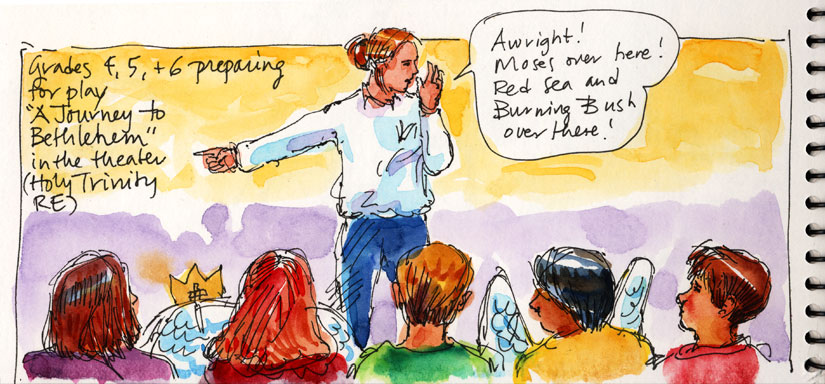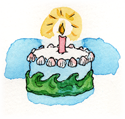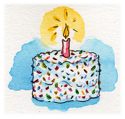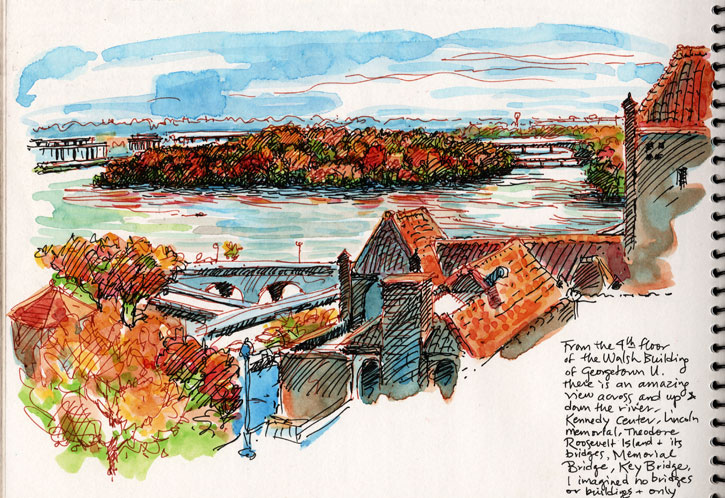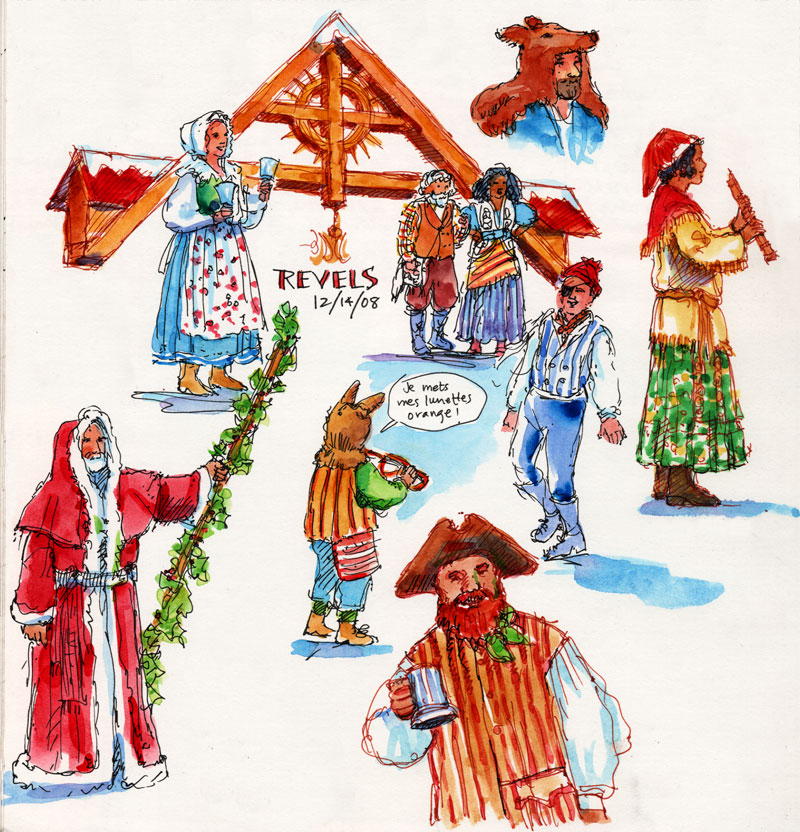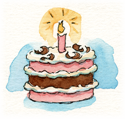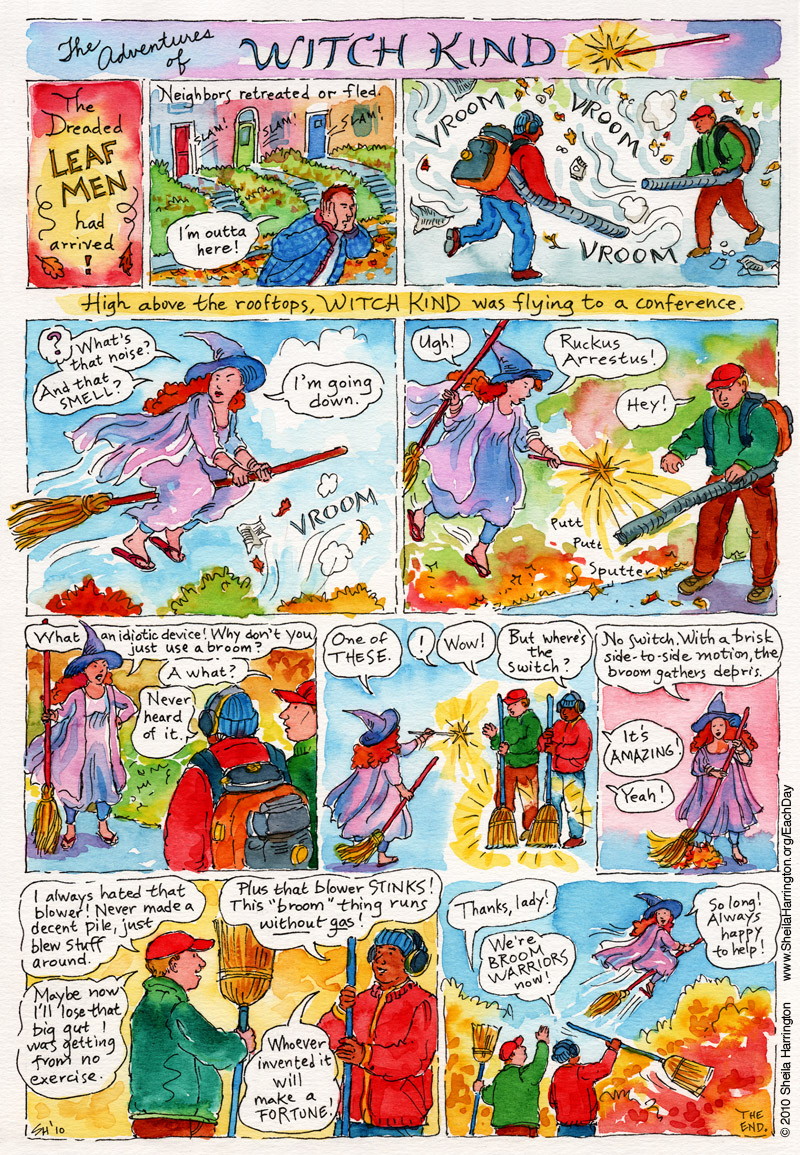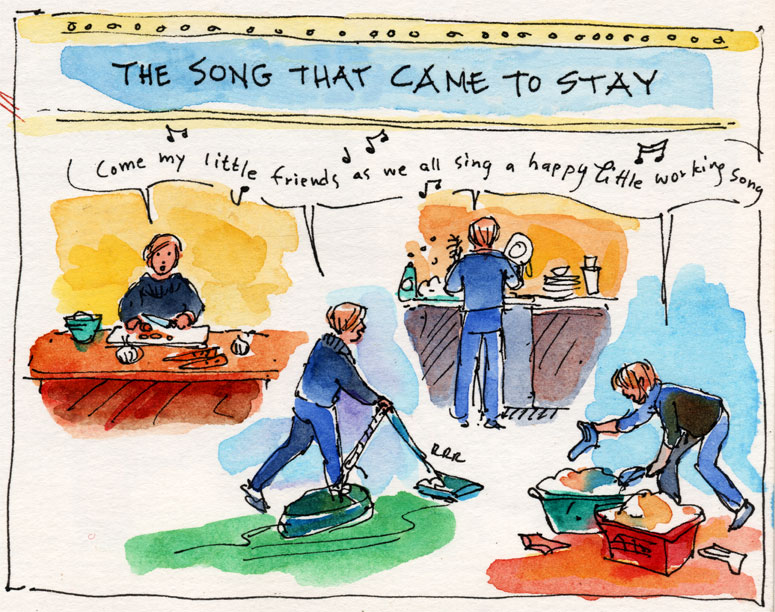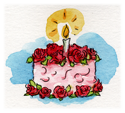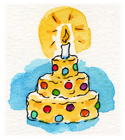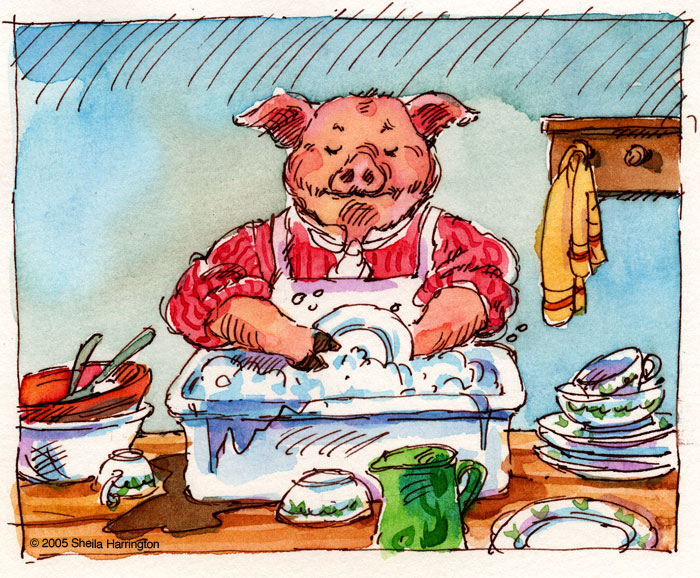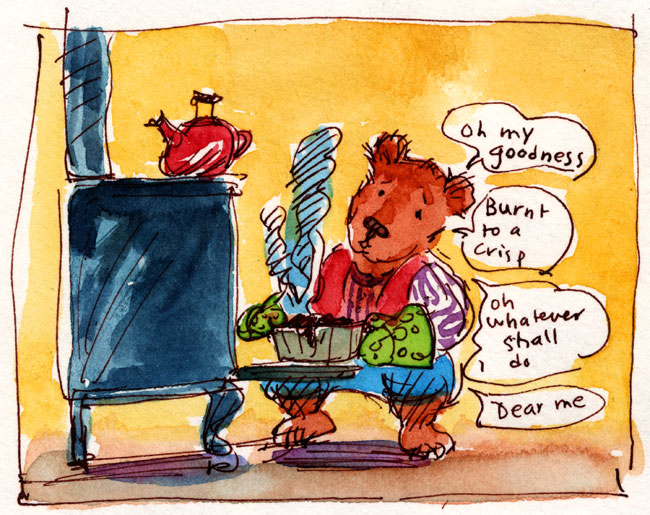Each year during Advent, some of our church’s Sunday school classes present skits based on stories from the Old and New Testaments. By chance I happened to be present at one of the dress rehearsals.
Holding up all this falling
Today is the birthday of Rainer Maria Rilke (1875-1926), and so I post his poem for late autumn, along with a sketch made from the window of the Georgetown University building where my daughter has her weekly Sunday school class, and where therefore I am fortunate enough to spend a quiet hour thinking, organizing, and gazing upon this view. The setting inevitably drives my thoughts back in time—to Captain John Smith sailing up toward Great Falls… to the Native American village that preceded Georgetown… to the geological forces that carved out this valley… I am SUPPOSED to be planning my week, which seems laughable in context.
The leaves are falling, falling as if from far up,
as if orchards were dying high in space.
Each leaf falls as if it were motioning “no.”
And tonight the heavy earth is falling
away from all other stars in the loneliness.
We’re all falling. This hand here is falling.
And look at the other one. It’s in them all.
And yet there is Someone, whose hands
infinitely calm, holding up all this falling.
—Rainer Maria Rilke
Revelry
Every year, on my to-do list for early October is: Buy Revels Tickets.
If you are not already familiar with these wonderful festivals, well, it’s about time.
The Revels was first created for the New York stage in 1957 by musician, teacher, and author John Langstaff as a celebration of traditional seasonal music, dancing, and storytelling. But it was not simply a stage performance. Langstaff realized that many of us are starved for the connection to the seasons that was part of human beings’ lives for millennia but which for the modern plugged-in citizen has largely disappeared.
Our ancestors didn’t buy tickets to watch a harvest festival, or a planting ritual, or a plea to the gods for the return of sunlight; they MADE every festival, with its traditional songs, dances, foods, and tales, all of which grew naturally out of their lives and acknowledged the continual turning of the year with its growth, loss and rebirth, sorrows and joys.
So Langstaff’s Revels straddles worlds old and new, with professionals and amateurs working together, to create events simultaneously entertaining, educational and participatory, in which audience members watch and listen, laugh (and cry), sing, dance, and sometimes join those on stage to work out a skit or song.
After his initial New York show, and a Hallmark Hall of Fame Christmas Masque (in which a young Dustin Hoffman played a dragon!), Langstaff presented a Revels in Cambridge, Massachusetts, and the concept took off. Since then numerous Revels groups have formed around the country, with permanent staff members and lots of eager volunteers, to bring these celebrations to the public, usually one in spring or summer and one near the Winter Solstice.
Langstaff’s first Revels incorporated medieval music, but over the years the repertoire has expanded to include traditional seasonal celebrations from all over the world and from many historical periods. Our family has enjoyed the Revels of India, Russia, Scandinavia, French Canada (from which these sketches), Early America, Victorian and medieval England, Renaissance Italy, and the Celtic world, each with appropriately gorgeous, colorful and meticulously researched music, folklore, customs, sets, and costumes.
This year’s DC Revels is set in Thomas Hardy’s rural England. If, in the midst of this season of darkness, you wish to find light—as well as a couple of hours’ joyful immersion in another time and place—then you are in luck. We always go as part of a great big group (then continue our own Revels afterward with dinner and music), but we didn’t buy ALL the tickets. We left some for you.
Light the Festive Candles
Witch Kind
Advent I: I Heard an Angel Singing
This year the First Sunday of Advent happens to fall on the birthday of visionary poet and artist William Blake (1757-1827). And so it seems appropriate to post this poem, with its manifestation of hope in the midst of bleak reality.
I heard an Angel singing When the day was springing, “Mercy, Pity, Peace Is the world’s release.” Thus he sung all day Over the new mown hay, Till the sun went down And haycocks looked brown. I heard a Devil curse Over the heath and the furze, “Mercy could be no more, If there was nobody poor, And pity no more could be, If all were as happy as we.” At his curse the sun went down, And the heavens gave a frown. Down pour’d the heavy rain Over the new reap’d grain … And Miseries’ increase Is Mercy, Pity, Peace.—William Blake
Happy Little Working Song
Sometimes we put this piece of music on the CD player to jump-start our Saturday chores. Really, it ought to come with a warning label. I’m still singing it hours later when I’m walking the dog, or trying to write a letter.

